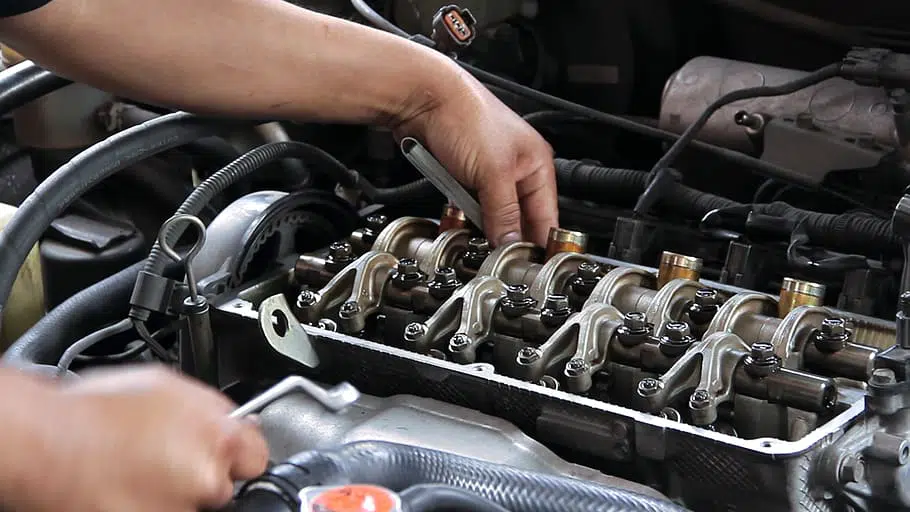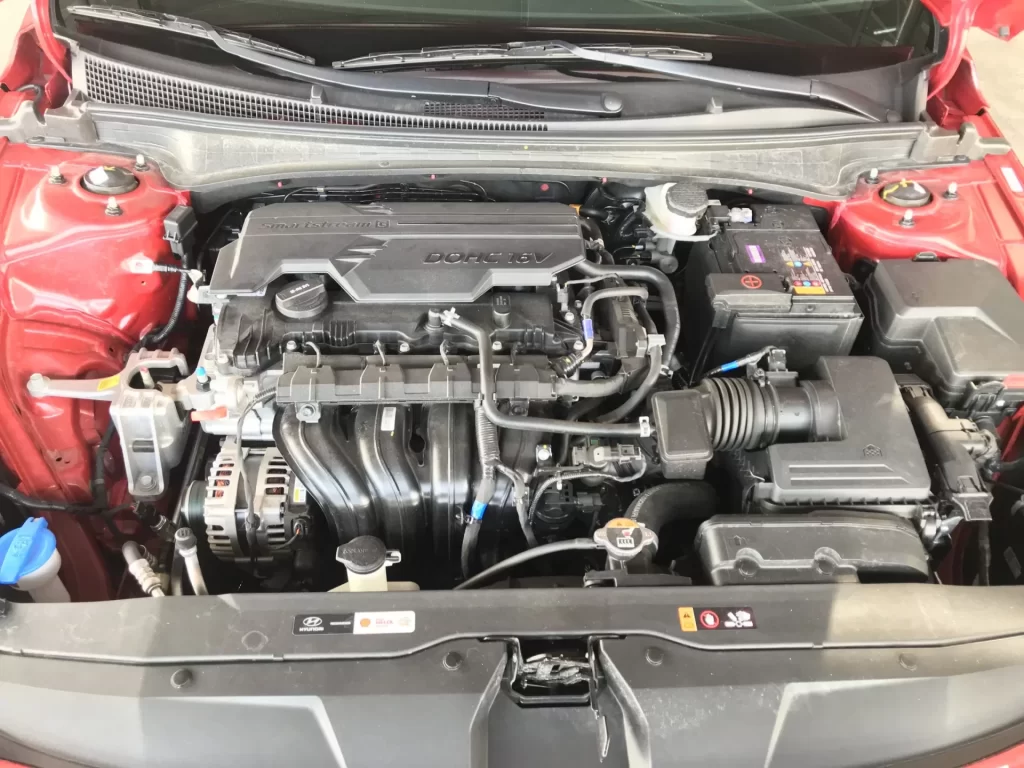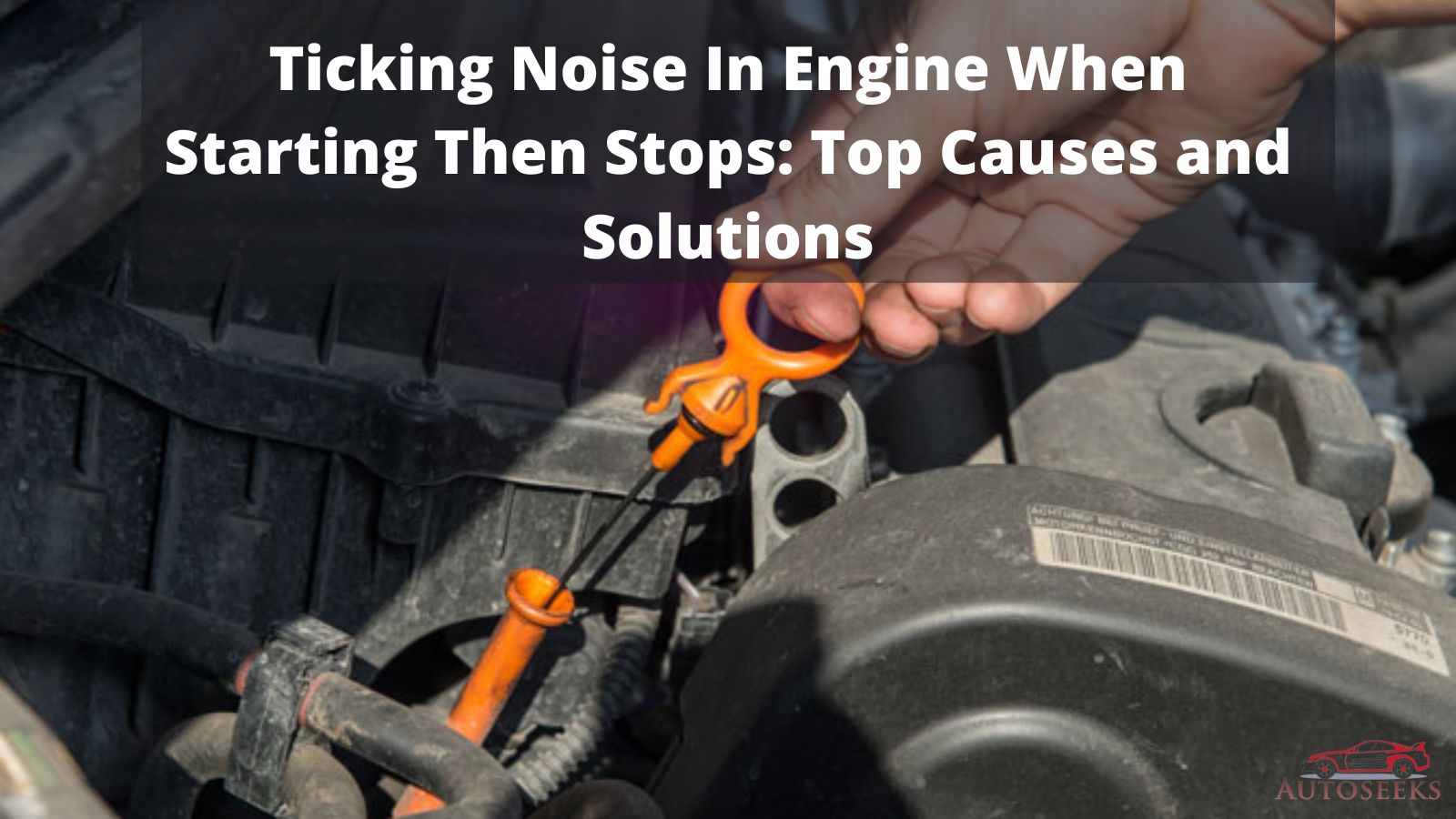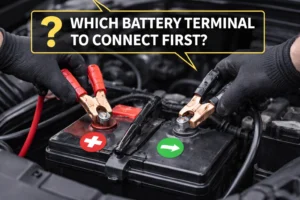There will always be noise from an automobile motor. After all, when an engine is working, there are a lot of moving parts and parts. The majority of this ticking noise in the engine when starting and then stops is not particularly loud and might contribute to ticking noises.
When the car is idle, accelerating, or even just after an oil change, you might hear a ticking, clicking, or tapping sound. You need to know the warning signals to watch out for to identify the true issue. and pose no threat.
Engine noises can occasionally sound a little odd or peculiar, though. If the engine is making a ticking noise, it is a good illustration of this. Numerous factors, including a lack of lubrication or, lose parts. Mostly, you might feel some old car parts for your car, to replace those parts for fixing your car engine again.
A working engine can produce clicking sounds along with other components. It could be brought on by a natural occurrence or by damaged auto parts linked to the engine. When the car is moving, accelerating, idling, or when it first starts, you will typically hear clicking noises.
Table of Contents
What Causes The Ticking Or Clicking Noise In The Engine of Vehicles?
To begin with, keep in mind that engine components can either reciprocate or rotate. Moreover, the clicking noise you typically hear may be brought on by the reciprocating elements.
It’s also possible that the spinning parts, such as worn bearings and other defective accessories, are to blame. The reason for this is that they continuously rotate while whining.
The moving parts of reciprocating engines, on the other hand, frequently create noises like clicking, clunking, or ratcheting. Examples of reciprocating parts include pushrods, rocker arms, valves, pistons, and rods.
The engine oil is another factor that has a significant impact on this noise. Numerous reciprocating and rotating components work together to make it function.

Your mind should tell you where to start looking now that you are aware of the components that are most likely to produce these noises.
You may eliminate the ticking sounds in the engine by locating the source of the problem. To be certain where the sound is coming from, you can still examine the rotating parts.
Top 7 causes of Ticking Noise in Engine When Starting Then Stops
The top 7 causes of a ticking noise coming from your engine are listed below:
1. Engine Fluid Low
Most times, you may hear a ticking noise in the engine when starting then stops, idling, or accelerating. This might be because there isn’t enough engine oil to adequately lubricate various engine components.
Engine ticking sounds and power loss can also result from improper lubrication of engine valve train components.
2. Lack of Maintenance
Your car will last longer if you give it regular and proper maintenance. Regular car maintenance is one thing; the proper personnel and equipment are quite another. If the wrong people and tools are used, your engine’s components will deteriorate and start to tick.
3. Rod knocking
A ticking noise will be produced by the rod if the bearing that is attached to it has failed. This occurs when a bearing wears out because it causes the rod to move.
Although there won’t be any temperature variations in the engine, there will be fluctuations in the RPM. Your complete motor would need to be rebuilt, which will be expensive, to address the rod knocking issue. However, sooner or later it will need to be done.

4. Issues with the oil filter and Not Using The Right Oil
Every vehicle has a recommended engine oil that works best for that particular model. If you use the wrong engine oil, your engine will generate a ticking noise.
The oil filter will become contaminated by dirt and produce a clicking sound if it starts to malfunction. It is important to know which auto oils to use because some are better for summer driving and others for winter driving.
5. Valve not adjusted
Misaligned valves may also make an engine ticking noise. Air can enter and exit the combustion chambers of an engine through the intake and exhaust valves. The valves are opened and closed with the aid of a part called a rocker’s arm.
The camshaft pushrods control the rocker arm in turn. These pushrods need to be precisely how far apart from the valves. As your engine rotates and moves quickly over a short distance, these valves open and close repeatedly.
6. Problems with filter spacing
Between a pushrod and a camshaft, the filter is positioned. If there is too much or too little space between these three components, problems will result. A ticking sound will be produced if the gap is loose since the parts won’t connect properly.
The heat from the engine expands the valve stem as your car is in motion. The lifter would not have enough room to handle stem expansion if the spacing was too small, which would cause the engine to tick.
7. Defective spark plugs
Particularly in automobiles with high mileage, an engine clicking noise may be the result of old or defective spark plugs. Other times, this noise can be brought on by a misplaced spark plug.
This is because an improperly positioned spark plug allows exhaust gasses to bypass and cause an engine to tick.
How Can Fix Ticking Noise in Engine When Starting Then Stops?
Depending on what is causing the ticking noise in the engine, there are various ways to solve it like the car jerking issue. As a result, several strategies will be required to address this issue.
★ Alternately, top off your engine oil
Oil has a role in some engine ticks. You should change it when it’s soiled. Try topping it with suggested oil additives if it’s low.
Leaks from worn-out gaskets or seals may cause low oil levels. To halt the leaks, you can apply additives like Blue Devil oil. There will always be adequate oil in a leak-free engine. As a result, stop ticking noise and maintain constant lubrication of your engine components.
★ Replace faulty spark plugs
Spark plugs are located on the internal combustion engine’s head. They won’t seat correctly if they are worn out, allowing fumes to bypass and causing the engine to click. You should swap out the damaged spark plugs to get rid of this licking noise.

★ Change the lifter spacing
The engine will make a clicking sound if the lifter is too tight or too loose. To get rid of this noise, make sure it is balanced. Lifter adjustments can be time-consuming, therefore a professional technician may be needed to make them for you.
However, you may find detailed instructions on how to adjust lifters in your car’s owner’s manual.
★ Valve adjustment
A certain distance between the pushrods and the valves is required. The valves must be properly positioned for them to open and close at the appropriate times. A clicking sound from the engine will be heard if this occurs.
Therefore, make sure the valves are properly adjusted to guarantee that they open and close at the proper times. This is especially true, especially for vehicles with superior fuel economy.
★ Change faulty oil filters
Oil filters prevent dirt from getting into the engine oil. A clicking sound in the engine can be attributed to bad filters that let dirt into the engine oil. Make careful to replace faulty oil filters to prevent this.
FAQ Regarding Ticking Noise in Engine When Starting Then Stops
Q. 1) Why does my car make a ticking noise on a cold start?
Ans. 1) In the morning or when the engine was cold, oil had a chance to flow from these into the oil pan due to gravity. Starting the engine when cold can produce a ticking noise like the one you describe. This happens because cats initially move without oil.
Q. 2) Will an oil change stop the ticking noise in the engine when starting?
Ans. 2) If your oil pressure is low or you have a low oil level, you may hear a splashing, tickling, or ticking noise from the engine. If this noise is coming from the valves or tappets, adding or changing oil will stop the noise. But unfortunately, if the noise is rod knocking, an oil change won’t stop it.
Q. 3) Why does my engine make a rattling noise when I start it?
Ans. 3) If you hear a clicking “click-click” sound when you start your car’s engine, this could be a sign of a piston knock. The pistons move up and down in their cylinders with a perfect fit between the piston and the cylinder wall.
As this tight gap grows with wear, the pistons will not move properly in the cylinder, creating a solid mechanical condition known as piston knock.
Q. 4) How much does it cost to fix a ticking engine?
Ans. 4) For both parts and labour, repairing a knocking engine can cost anywhere from $2,000 to $3,000 on average. If the damage is greater, you may also have to pay for the replacement of the extra parts. Don’t put off this repair as the damage will only get worse.
Conclusion
A low oil level can cause a ticking noise in the engine when starting then stops as the valve train components are not properly lubricated and start making noise. If you hear a ticking noise in your engine, check the oil level right away.
If you find that you are low on oil, consider adding an oil additive like BlueDevil Oil Stop Leak when you top up your engine oil.
- How Families in UAE Manage Changing Vehicle Needs - March 4, 2026
- How Many Axles On A Car And What They Do - March 2, 2026
- Metal Shavings In Oil Causes And What It Means - March 2, 2026


